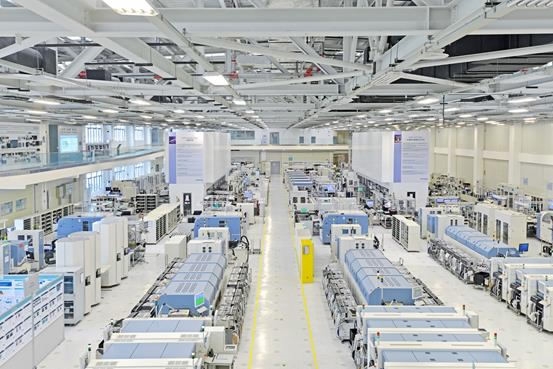
Business
12:01, 01-Mar-2018
Foreign investment in SW China city continues to grow
By Yang Jinghao, Luo Caiwen

One billion yuan (158 million US dollars) – this is what the German engineering giant Siemens has invested in August in the southwestern Chinese city of Chengdu to establish a smart manufacturing innovation center, and a global industrial software R&D center. Both centers are expected to go into operation in a few months.
“The Siemens industrial software R&D center is the first MindSphere focused R&D center located outside Germany,” Ma Ziye, Vice President of Siemens China, told CGTN. Ma is also the General Manager of Siemens’ Chengdu and Chongqing branches. “With these two new centers, Siemens contributes where ‘Industry 4.0’ meets ‘Made in China 2025’.”
This ambitious move came after 2013 when the company established its first overseas digital factory in Chegndu. Ma said in recent years, Siemens Electronics Works Chengdu and the local government have closely cooperated on the city’s infrastructure such as the airport and metro lines.
In fact, Siemens’ rapid development in Chengdu demonstrates the thriving city’s status as China’s new hub for foreign investment. Statistics from Chengdu’s investment authorities show that, as of October, 281 of Fortune Global 500 companies already have a presence in Chengdu. 199 of them are from overseas, and the number is expected to continue to grow.

An employee works in Dell’s factory in Chengdu. A growing number of foreign enterprises, including multinationals, are flocking to the thriving city. /CFP
An employee works in Dell’s factory in Chengdu. A growing number of foreign enterprises, including multinationals, are flocking to the thriving city. /CFP
“Chengdu has a very solid industrial eco-system, with favorable investment environment and talent resources, together with comprehensive governmental services,” Ma explained, adding that strong and robust development of enterprises in fields of information technology, automobile, astronomy and biomedicine, among other industries, gives the region an edge.
Benjamin Wang, Chairman of the American Chamber of Commerce in Southwest China, echoed Ma’s claims. He said investment in the city has been more diverse in recent years. Besides multinationals, many small and medium-sized US firms in various industries have also been drawn to the economic powerhouse in southwest China.
Wang said along with a positive development momentum, these companies also face multiple challenges such as rising labor and operational costs, as well as IPR protection issues.
“The city should take stricter measures on IPR protection. Some US enterprises are afraid of losing IPR. This is a big challenge for US companies and on the other hand, a challenge for local government,” Wang said.
This year marks the 40th anniversary of China’s reform and opening-up, and China has pledged to “open wider” to the outside world. This is expected to attract more investments to the region.
Wang told CGTN that more than 80 percent of the US companies they survey are confident of their development in Chengdu. Some are willing to invest more.

A couple stands in front of the Citibank in Chengdu. Increasingly more foreign banks have set up branches in the city in recent years. /CFP
A couple stands in front of the Citibank in Chengdu. Increasingly more foreign banks have set up branches in the city in recent years. /CFP
Bian Chenggang, General Manager of Intel Chengdu, told Sichuan Daily in December that the exports for Intel Chengdu greatly increased in 2017 thanks to the Advanced Test Technology (ATT) project, and the headquarters decided to increase its investment in the city.
As the global leader in electrification, automation and digitization, Siemens is optimistic and has bigger plans.
“With the further implementation of the Belt and Road Initiative, we are confident we will have more opportunities in intelligent manufacturing, smart cities, mobility and energy in Chengdu,” said Ma.

SITEMAP
Copyright © 2018 CGTN. Beijing ICP prepared NO.16065310-3
Copyright © 2018 CGTN. Beijing ICP prepared NO.16065310-3